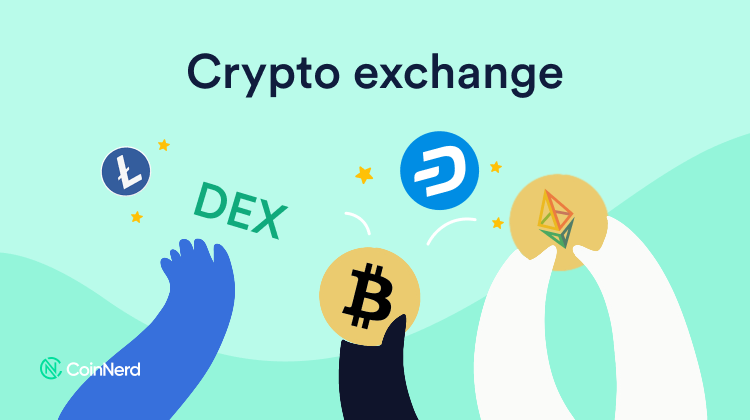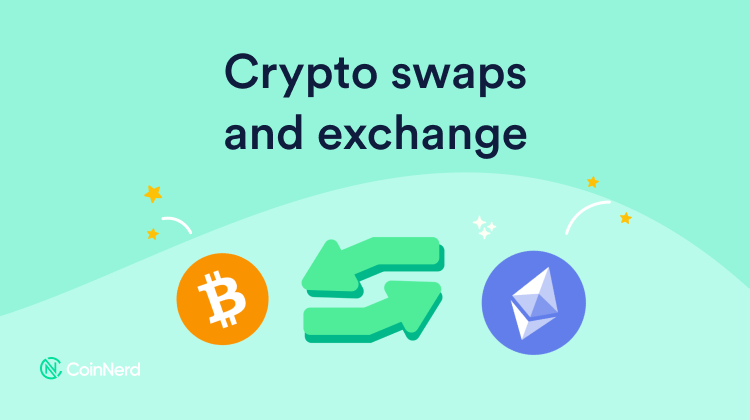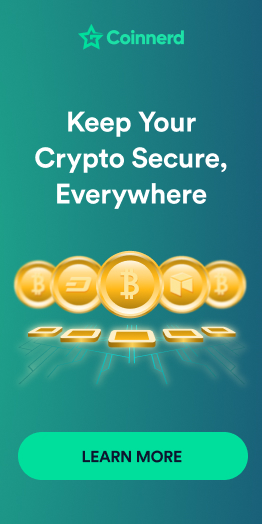What Are Decentralized Cryptocurrency Exchanges and How Do They Work?
The cryptocurrency industry is quickly growing and spreading its wings globally. The adoption of crypto by many is changing how money is being handled. Slowly money is getting back into the hands of people rather than government and entities. The idea of crypto has given rise to the concept of the decentralized cryptocurrency exchange (DEX), which allows users to exchange fiat money into crypto or even exchange one cryptocurrency for another.
The DEXs are peer-to-peer marketplaces where traders and investors make transactions directly without the intervention of an entity or their funds going through a third party. The DEXs exist to remove the need for any authority overseeing and authorizing the trades or transactions on behalf of the traders. The traders make the transactions by using self-executed agreements known as smart contracts.
Peer to Peer Trading in DEXs
Peer-to-peer (P2P) trading of cryptocurrencies is where the buyers and sellers are linked by the marketplace they are using to complete the transactions between themselves. Users have complete control of their funds and wallets, plus their private keys. A private key is encryption that the user uses to access their wallet and of course their cryptocurrencies. It works more or less like a password. Private key users access their crypto balances after logging into their DEXs.
Because of the liquidity-related problems of automated market makers, many traders and investors have adopted decentralized finance (DeFi) to contribute to their financial growth. Furthermore, DEXs and wallet extensions have made the growth of decentralized platforms surge by almost 40%.
Moreover, these exchanges have helped traders avoid submitting personal information like names and addresses, keeping their privacy safe. Let’s look at decentralized exchanges in-depth to understand how we can benefit from them as traders and investors.
The Decentralized Cryptocurrency Exchange for Beginners
The decentralized exchanges, as mentioned earlier, are peer-to-peer marketplaces allowing buyers and sellers to transact between themselves without the need for authority or third-party interventions. The DEXs mostly rely on self-executing agreements written in code known as Smart Contracts.
This is good for traders because it keeps their information private compared to the centralized systems managed by financial entities like banks looking to profit. The centralized systems or exchanges, as most people refer to them, offer services the same as banks. Keeping customers’ funds and providing security and surveillance services for the individual makes it easier to move funds around.

In contrast, decentralized exchanges allow the users to trade from their wallets directly and interact with the Smart Contracts that operate behind their trading platforms. The individual traders also get complete control over their funds. They can move the funds themselves and are responsible for losing them if they make mistakes like losing their private keys or sending money to the wrong addresses. Keep on reading, we will be looking at wallets and addresses later in this article.
Popularly, DEXs run on leading blockchains like Ethereum Blockchain, which supports Smart Contracts and is built directly. Customers’ funds are safe with decentralized exchanges because the funds are issued under a blockchain-based token with the same value as the underlying asset, enabling the user to trade freely on the network.
Types of Decentralized Crypto Exchanges
The decentralized cryptocurrency exchange, as earlier mentioned, is built directly on blockchain networks that support Smart contracts. This is what allows users to keep track of the funds and every transaction they make.
A transaction fee is incurred for every trade made, along with trading fees and gas fees as well. But despite this, the trader always interacts with smart contracts on the blockchain even though in essence they will be using decentralized exchanges.
As you can imagine, there are several different types of DEXs. Well, the decentralized cryptocurrency exchange market is categorized into three. This includes the automated market maker, Order book DEXs, and the decentralized exchange (DEX) aggregators. Here is a breakdown of each of them:
The Automated Market Makers (AMMs)
AMMs, like other DEXs, also fully rely on smart contracts. But they were created to solve liquidity problems associated with DEXs and execute trades on the blockchain using contracts holding the tokens.
Here is how it works. First, Blockchain-based services provide information from the exchanges to set the price of the traded asset, known as the blockchain Oracles. The smart contracts on the AMMs then use liquidity pools to execute these trades. The liquidity pools are funded by other users who earn a portion of the transaction fees the protocol charges for executing trades.
In most cases, the liquidity providers make deposits equivalent to the value of the asset being traded and earn interest on their crypto holdings in a process known as liquidity mining.
Therefore, the liquidity pools allow the traders to make order executions and earn interest in a trustless manner. AMMs rank according to the amount of funding locked within the smart contracts known as TVL (Total Value Locked). The higher the TVL, the higher the liquidity.
When liquidity is lacking from these platforms, buyers pay above the market prices in their orders. Hence higher orders have higher slippage. In some cases, wealthy traders refuse to use these platforms to avoid suffering from high slippage.
The Order Books Decentralized Crypto Exchanges
This type of exchange compiles records of all open orders to buy and sell assets. There are two types of orders in any exchange, the buy and the sell order. The buy orders indicate the highest price a trader is willing to pay for a given asset.
The sell order is the lowest amount the seller is willing to accept for the asset. There is a spread in between the buy and the selling price. This is the primary determinant of the depth of the order book. The order book decentralized exchanges are in two categories. Here they are:
The On-Chain Order book
In most cases, the DEXs that use these order books hold open order information on-chain. This allows users to leverage their positions with funds from lenders on their platforms. However, leveraging increases the risks of liquidation as the size of the funds borrowed increases too, which has to be paid anyway whether they are earning or not.
The Off-Chain Order book
The DEXs using this order book only settle trades on the blockchain beneficial to traders. When using Off-chain DEX, the exchanges reduce extra costs, increasing speed and guaranteeing that trades only execute at prices that users desire.
Nonetheless, Order books DEXs suffer liquidity issues a lot. This is because they are essentially always competing with the centralized exchanges incurring extra fees in the process. Even though the off-chain option reduces these costs, the risks always arise because of the necessity of depositing funds in them.
DEX Aggregators
These DEXs use different protocols to solve problems of liquidity. Liquidity from some DEXs is aggregated to minimize slippage on large orders, optimize swap fees, and offer traders the best prices.
Aggregators protect users from the pricing effect and reduce the regularity of transactions failing. Other DEX aggregators use liquidity from centralized exchanges to provide better experiences to users.
Using Decentralized Crypto Exchanges
The DEXs do not require a user to sign up because the email address is not needed to interact with the platform. The traders are only required to have a wallet compatible with the smart contracts on the exchange’s network.

Users with smartphones and internet connections benefit from DEXs a lot. However, in using decentralized exchanges, there are a few steps that you will need to follow for success in your transactions or trades to come. Here they are:
- Decide which network to use, considering that a transaction fee will be incurred for each trade you execute.
- Choose a wallet that is compatible with the network selected. The wallet extensions allow the users to access their funds directly on their browsers and interact with Decentralized apps (DApps) and DEXs.
- Fund your wallet with tokens that are the native token or accepted by the DEX. The token is for paying transaction fees in the network selected. However, the tokens must be purchased on centralized exchanges like Binance and identified with the ticker.
- After a buying, the tokens withdraw them to the wallets you control. Significantly, make sure you do not move funds to the wrong network. Connect your wallets through a pop-up prompt or connect them to the user device.
What Are the Advantages and Disadvantages of Using a Decentralized Crypto Exchange?
While it can be expensive trading on decentralized exchanges, especially when transaction fees are high, decentralized exchanges provide their users with many advantages or benefits.
The token availability in DEXs is high
Unlike the centralized exchanges, which vet tokens to ensure they comply before listing them, DEXs include any token minted on the blockchain and built for the particular chain. Hence new projects are quickly listed on the DEXs before the centralized exchanges.
However, users need to be careful because of the scammers that emerge from decentralized exchanges. For instance, ‘rug pull’ occurs whenever a project dumps its tokens to provide liquidity.
Provide Anonymity
The anonymity is provided when the users exchange one cryptocurrency for another on the DEXs. This is a tremendous advantage for DEXs users who want privacy. Unlike centralized exchanges where users undergo a verification process known as KYC (Know Your Customer),
A decentralized cryptocurrency exchange doesn’t require this. KYC verification process has to do with users providing their personal information that is legal for identification. As a result, many users flock to the DEXs to avoid being identified.
DEXs Are More Secure
The cryptocurrency users who have experience in the field love noncustodial DEXs since it reduces the risks of hacks. The users on DEXs have complete control of their funds and only interact with the exchange when there is a need to do so.
Thus, if the platform is hacked, only the liquidity providers are at risk. However, the users need to do thorough research on whether the DEXs they intend to use have smart contracts that have been audited.
Several disadvantages come with using a decentralized cryptocurrency exchange. Here they are:
Lack Of Technical Knowledge
Some knowledge is required for users to interact with decentralized platforms. As of now, we know that DEXs can only be used when a user has a crypto wallet that can interact with smart contracts. Users then need to know how to use these wallets and understand the security concept connected with keeping their funds safe.
The users also need to understand how to fund their wallets, and with the correct tokens. They need to be aware that the network they are using requires transactional fees to move the crypto.
This is just too much info to keep in mind. The lack of all this knowledge can lead to the user making a lot of errors, like withdrawing to the wrong network, overpaying transactional fees, and losing funds in the process.
Smart Contract Vulnerabilities
Blockchains like Ethereum have Smart contracts which are available in public for review. Therefore, users need to know that reputable firms have audited the smart contracts of large DEXs.
However, there are instances where exploitable bugs slip past the audits. At times the auditors may be unable to see the potential risks that will lead to loss of tokens by liquidity providers.
The unvetted Tokens
DEXs have the advantage of having the tokens listed quickly because they do not need to undergo a vetting process. Anyone can list their token on a decentralized cryptocurrency exchange and even provide liquidity.
However, this, in some cases, leaves investors vulnerable to scams. Due diligence is paramount to avoid the common scams and actors who take advantage of the users.
Popular Decentralized Cryptocurrency Exchanges
There are some popular decentralized exchanges worldwide that provide a broad array of crypto than centralized exchanges. They tend to have lower fees and offer more accessibility to the assets. Besides, DEXs continue to make strides and refine the user experience by the day. Some of the most popular DEXs in the crypto space include;
Uniswap
The DEX is the largest decentralized exchange by volume. It is also the pioneering DEX within the DeFi sector. Uniswap is built on the Ethereum blockchain protocol and is an AMMs DEX (refer to types of DEXs). The DEX also relies on liquidity providers who supply tokens for transactions and earn interest in return. Uniswap uses the UNI token.
SushiSwap
The DEX is a source code fork of UniSwap. It uses SUSHI as its token. It is also built on the Ethereum blockchain.
PancakeSwap
The DEX was launched in September 2020. It’s built on Binance smart chain BSC and also doubles up as an AMM. The DEX uses CAKE as its native token. Additionally, the token has introduced Non-Fungible Tokens (NFTs) and the Initial Farm offering (IFO).
Bancor
Bancor is an original pioneer of AMM DEXs. It uses BNT as its native token minted in its protocol. The curve is also another option. The curve DEX uses CRV as its native token. It is also a famous AMM DEX with low fees and low slippage.
What Is a Cryptocurrency Decentralized Wallet?
You will need the best crypto wallets to use DEXs. Crypto wallets have been designed to provide their users with a digital solution. Many assume that the crypto wallets hold cryptocurrency.

Not quite so because significant cryptocurrencies like Bitcoin and Ethereum are stored on the blockchain. However, other cryptos require a wallet because they run on smart contracts built on the blockchain. Wallets can however be centralized or Decentralized as explained below.
Centralized Wallets
Many folks use centralized wallets to access the crypto market. This indicates that the storing and custody of users’ funds or crypto is purely under the management of a third party. Good examples of centralized wallets are Binance and Coinbase.
Under a centralized wallet, the third party knows the user’s private keys and therefore can access the user’s funds to send, receive and store crypto on behalf of the user. Many crypto users, however, find this third-party agreement very unnecessary.
After all, Crypto was invented to put money where it belongs – in the hands of the owners and not third parties that request paperwork and if you don’t have it, you can’t access the money you duly own.
However, to some extent, centralized wallets provide some level of security. Picture it this way. If you are in total control of your funds, you have no way of getting them back when you lose them. But with centralized wallets, when your funds get lost, you have a way to get them back through a third party.
Decentralized Wallet
This wallet is more of a personal wallet. It is managed and maintained by the owner of the wallet and no one else. This means that if funds or the crypto get lost, the user has themselves to blame.
Decentralized wallets are not provided by any crypto firm or financial institution but exist on the computer or USB drive, closing out third parties.
The DEX wallet allows users to make peer-to-peer transactions on the internet, making it as private as possible. The ability to make transactions is an excellent option because of the security and independence.
Also, some people like eliminating government financial monitors when making transactions. Decentralized wallets offer that. Decentralized Cryptocurrency wallets are also categorized into hot and cold wallets with different offers and uses.
The hot wallets offer convenience and security. They are personal and are managed online. An online company hosts the wallet but not your private keys, providing ease of use while maintaining complete control of your crypto.
Hot wallets are more beneficial while making basic transactions. However, because they are online, they are vulnerable to hacking and, therefore, not recommendable for you to put your entire crypto. The best wallets in this category are MetaMask and Trust wallets.
Nonetheless, the most secure wallet to store crypto is the cold wallet. The cold wallet is also known as a hardware wallet. They are not connected online and therefore not prone to hacking. Examples of this include Trezor, Ledger Nano S, and others.
Please also note that decentralized wallets are the best for use with a decentralized cryptocurrency exchange. This is because they ensure your cryptocurrency’s safety and give you total control of your funds all the time.
* We hope this information will help you in your investment process, but this is not investment advice. Every investment carries risk, especially in this industry, so DYOR before making a decision.






